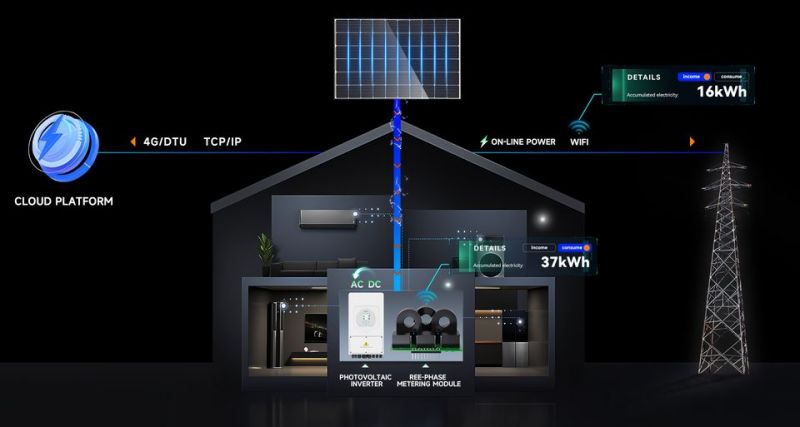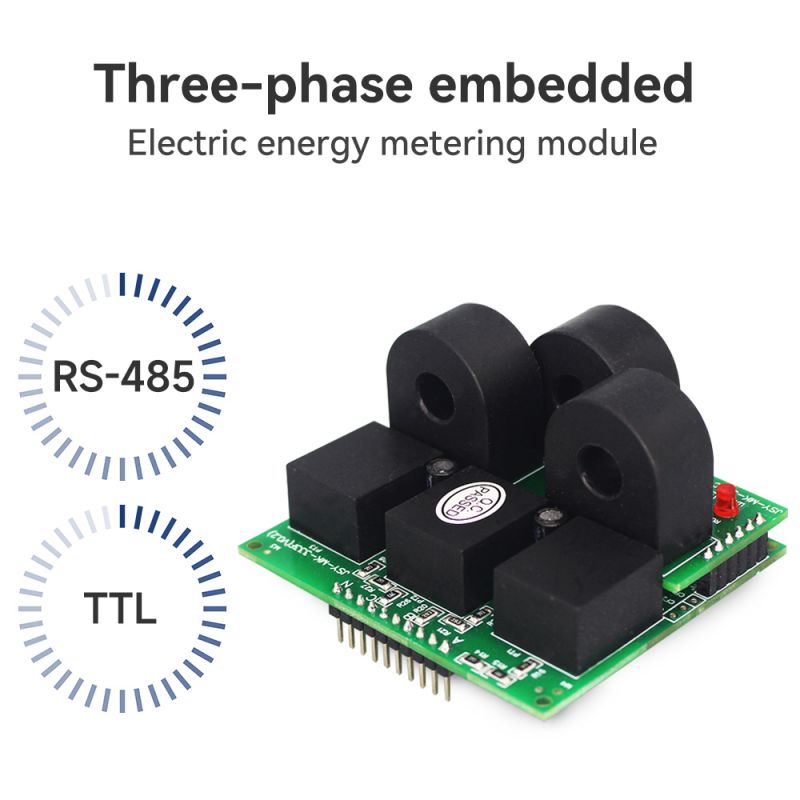Introduction to Solar Meter Measurement and Monitoring Introduction: As people pay more and more attention to renewable energy, the utilization of solar energy has become one of the important ways to solve energy problems. The introduction of solar meter measurement and monitoring systems provides a more efficient and reliable solution for the popularization and management of solar energy. This article will introduce the basic principles, functions and advantages of solar meter metering and monitoring systems, as well as its application prospects in the field of renewable energy.
1. Basic principles: The solar meter measurement and monitoring system monitors and manages the operation of the system by collecting and recording the power output and power consumption of the solar power generation system. It includes solar meters, data collection terminals, databases, monitoring software and other components. The solar meter measures and collects electric energy and transmits the data to the data collection terminal; the data collection terminal uploads the data to the database and analyzes and displays the data through the monitoring software.
2. Function: Real-time monitoring: The solar meter metering and monitoring system can monitor power output and power consumption in real time, detect and solve problems such as system faults and energy loss in a timely manner, and ensure the normal operation of the system. Data recording and analysis: The system can record and analyze data such as the power output of the solar power generation system. Through data statistics and comparison, the performance and benefits of the system can be evaluated to provide a basis for optimizing system operation. Remote management: The system supports remote monitoring and management. Users can view the system operating status and data information in real time through the Internet, and perform remote adjustment and control to improve the convenience and efficiency of operation. Alarm and maintenance: The system can perform real-time monitoring based on set thresholds. Once abnormal conditions are found, such as a significant decrease in power output, equipment failure, etc., the system will automatically issue an alarm to remind users to perform timely maintenance and processing.
3. Advantages: Improve energy utilization efficiency: The solar meter measurement and monitoring system can accurately measure the electric energy production of the solar power generation system and help users analyze and identify energy usage, thereby optimizing the operation of the system and improving energy utilization efficiency. Reduce operating costs: Through real-time monitoring and analysis of energy data, the solar meter metering and monitoring system can achieve reasonable management of energy, avoid energy waste, and reduce operating costs. Saving manual maintenance and management costs: The solar meter metering and monitoring system can realize remote monitoring and maintenance, reducing the frequency and cost ofmanual inspections and maintenance, and reducing the workload of managers.
4. Application prospects: Solar meter metering and monitoring systems have broad application prospects in the field of renewable energy. With the continuous advancement and popularization of solar power generation technology, solar meter measurement and monitoring systems will become an important part of the solar power generation industry, promoting the rapid development and standardized management of the industry, while achieving sustainable use of energy and environmental protection. Conclusion: The solar meter metering and monitoring system provides comprehensive support for the management and monitoring of solar power generation systems with its efficient and reliable functions and advantages. Its introduction can not only improve energy utilization efficiency and reduce operating costs, but also promote the development and application of renewable energy and contribute to the realization of sustainable energy development.
Post time: Nov-29-2023









